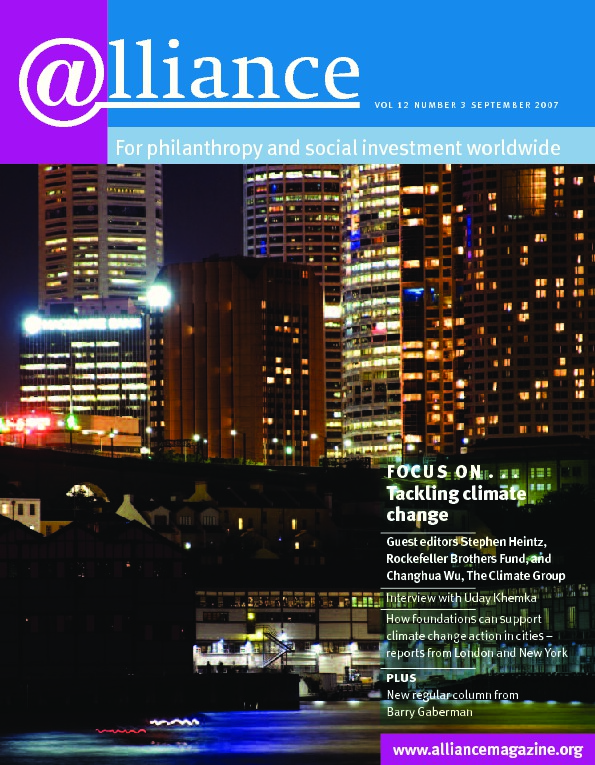I am writing this letter as someone who has worked with international NGOs for over 30 years and as one who is well aware of the difficulties of implementing effective advocacy, fundraising, or creating public awareness. The use of celebrities for any or all of these objectives seems to be a reasonable short cut to success in these objectives. However, in talking with colleagues around the world it is also clear that here is a growing uneasiness about this approach; one which I share.
My starting point on this issue is that for those of us who come from more privileged backgrounds, our efforts are to empower the dispossessed. Most activists, be they from the North or the South, come out of a cultural tradition of noblesse oblige and we have been trying, with much success, to move beyond that. Any of us who have worked with the poor are overwhelmed by their heroism in the face of staggering adversity. For me, they are the true heroes and it is their courageous struggle that needs to be put first and foremost before the public.
A celebrity to me is a fictional persona. He or she may or may not be a fine, caring person, but their true personality lies away from the media. Until we know someone personally, we do not know what his or her values are. All celebrities are experts in creating and enhancing a public persona. How do we get behind the myriad facades that they create at will? If we do succeed in developing respect and confidence in them, then do we turn around and exploit their public persona rather than their true persona, simply because the latter is largely irrelevant to the public?
If we feel the need to use stars in our dealings with the political class, then perhaps we need to reassess our strategy. It is obvious that this represents a photo-op for any astute politician. They will, of course, take full advantage of it, and we may believe that we are getting access and influence that we would otherwise not obtain.
I believe that this is false access, predicated instead on the perceived need of a politician to get publicity – any publicity. I don’t believe that the substantive results to date have merited the effort put into it. Meanwhile, over the past 20 years or so, international civil society has dramatically increased its capacity to have access to the highest levels of decision-making around the globe.
If we want to exert political influence we must do it on our own terms; no compromises. It is essential that our means must conform totally with our ends. Does the use of public persona conform to the kind of world we envisage? A world where elected political leaders, entertainment stars and athletes mingle together as some kind of mediatized super-class?
Compare this strategy with a massive mobilization of voters; especially the poor. This also can force the politicians to react, but in a substantive way, not for a quick burst of media exposure.
If the objective is strictly fundraising, then I am a little more lenient. But even then I would ask our ‘star’ to work with us anonymously for one to two years. Test his or her commitment to our cause and then if, after two years of honest, obscure help, they still want to continue, welcome them with open arms and perhaps take advantage of their ability to open certain doors. Just because they might be one of the ‘beautiful people’ doesn’t mean that we should reject them either.
Nigel Martin Director, Montreal International Forum (FIM)





Comments (0)